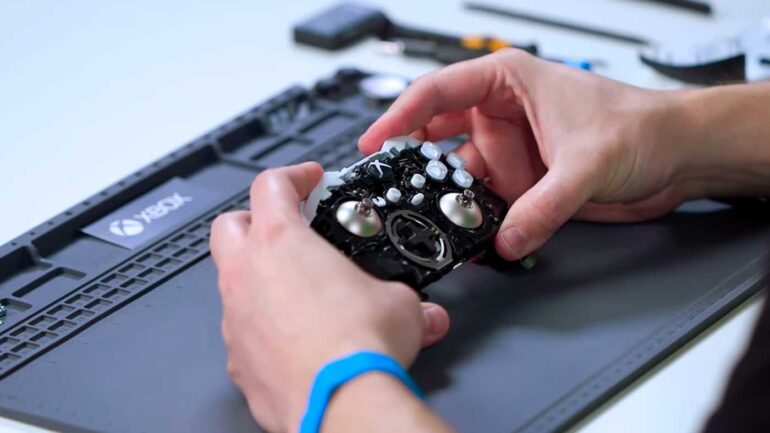Seemingly out of nowhere and somewhat in spite of its love of selling billions of controllers, Microsoft has started selling replacement parts for its Xbox Wireless Controller and Xbox Elite Series 2 Wireless Controller on its official online store, opening up the way for users have issues with their devices – and brave enough to attempt pulling them apart – to make repairs themselves.
Those willing to perform open surgery on their controllers can now pick up replacement PCBA and motor assemblies, input PCBAs, button sets in both black and white variants and controller top cases in both black and white for either the standard or Elite Series 2 controllers. Prices range from around $30 AUD for a replacement case on a regular Xbox Wireless Controller to around $90 AUD if you’re going to try to rip out your Elite Series 2’s guts and replace the PCBA and motor assembly.
Microsoft also provides online instructions for making the repairs as well as instructional videos on YouTube. Although the endeavour wouldn’t be overly useful when a controller is still covered by a warranty or consumer guarantee, Microsoft does also note that doing these repairs won’t invalidate its warranty provided no actual damage is done to the controller.
This repair component program is currently only available in North America, but Microsoft seems to be looking for feedback so if all goes well we may see this roll out more widely.
Xbox Users in North America – check out a new program we are supporting. We would love your feedback https://t.co/anLnThXL6l
— Brad Rossetti (@WorkWombatman) July 31, 2023
Xbox obviously isn’t the first out there to offer replacement parts for its own controllers, but it’s now an official avenue for those willing to take. It’s likely a welcome move at a time where the right to repair for consumer goods is a consistent conversation as well, one that’s led official bodies in parts of the world to crack down on manufacturers, especially where the rising consequences of mass e-waste are concerned – like legislation in the EU that could lead to future handheld consoles requiring removable batteries.



